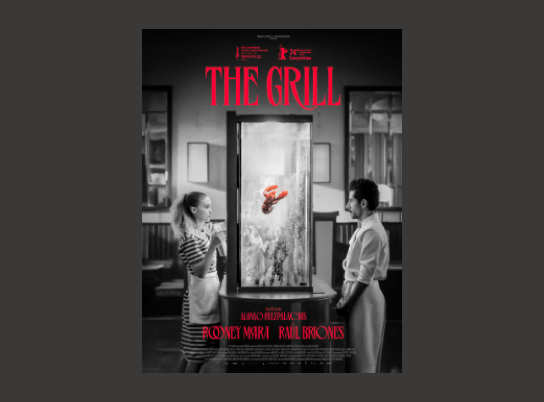
Set in a New York restaurant, The Grill explores immigration, abortion, and identity through high-pressure kitchen dynamics. Inspired by real life and classic theater, the film offers a raw, timely look at aspiration and disillusionment.
Immigration, abortion, and the eternal quest for the American dream: these are the explosive ingredients of the Mexican-American film The Grill, hitting theaters Wednesday. Set inside a New York restaurant, it dives into the intense world of a Times Square tourist-trap kitchen.
Rooney Mara, who won Best Actress at Cannes in 2015 for Carol and has been nominated twice for an Oscar, stars as a waitress surrounded by mostly immigrant coworkers, including Pedro, played by Mexican actor Raul Briones.
Films and series centered on restaurants are currently trending, following the success of The Bear, starring Jeremy Allen White, and the 2022 thriller The Menu, with Ralph Fiennes and Anya Taylor-Joy.
The Grill is a film about contrasts—between the kitchen and the dining room, between the gringos (Americans) and the Mexicans, between the various hierarchies in the kitchen," said director and screenwriter Alonso Ruizpalacios in an interview with AFP. “Kitchens are a good way to understand the dynamics we experience in the streets,” he added.
To Ruizpalacios, restaurants foster a “blending of cultures,” making them the ideal stage to “highlight the frictions” that exist between those cultures. “They are also places of extreme pressure... painful things can emerge from them, but occasionally, so can glimmers of hope,” he said.
The film is inspired by Arnold Wesker’s 1957 play of the same name, which focuses on the lives of immigrants and how the dream of social mobility through hard work becomes an illusion. But the 46-year-old director also drew from personal experience, having worked as a dishwasher in a similar London restaurant during his student years.
In the film, Pedro, an undocumented Mexican immigrant, falls in love with Julia, the waitress played by Rooney Mara, who only partly returns his feelings.
As they dream of a romantic future together, Julia faces a difficult dilemma: whether or not to have an abortion. All of this unfolds in the hectic setting of a busy restaurant where customers show little regard for the staff.
“I wanted to show the people behind the kitchen doors,” said Ruizpalacios, referring to “people who have families, dreams, and who work incredibly hard for very little pay.”
He also chose not to idealize his characters: “In these kinds of stories, to help Americans reflect on their own racism and prejudice, the ‘other’ is often simplified into a saint—and that doesn’t interest me.”
“These characters are complex people, full of contradictions.”
Though it resonates deeply with current U.S. politics, the filmmaker chose to shoot in black and white to avoid anchoring the film in any specific era. “There’s something timeless about this story. It’s still relevant, even 70 years later.”
With AFP



Comments